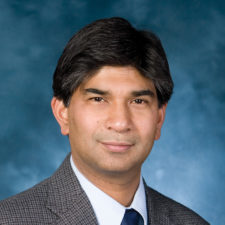News
March 19, 2024
Cars could detect drunk and impaired drivers using technology developed by U-M engineers
Local news source Concentrate interviewed Mohammed Islam about his plan to keep drunk and impaired drivers off the road with inexpensive technology that can be incorporated into cars in the near future.March 19, 2024
Scientists use biometrics, behavior analysis for drunk driver detection
News outlet Biometrics Update reports on Mohammed Islam’s solution to detect drunk and impaired drivers. They describe the solution as “More economically viable for mass adoption than in-car breathalyzer.”Auto industry deadlines loom for impaired-driver detection tech, U-M offers a low-cost solution
As the comment period closes on the new federal requirement, a U-M team led by Prof. Mohammed Islam demonstrates that upgrades to current technologies could do the jobNew non-invasive optical imaging approach for monitoring brain health could improve outcomes for traumatic brain injury patients
The SCISCCO system could better monitor brain and organ metabolism, helping to diagnose concussions, monitor cerebral metabolism in traumatic brain injury patients, and gauge the response of organs to treatments in an operating or emergency room scenario.Touchless respiratory and heart rate measurement for COVID-19 health screening
New technology provides a contactless method to add respiratory rate and heart rate to temperature readings .
Freethink: March 3, 2020
New lasers see into the brain to detect concussions
University of Michigan Engineering researchers’ work to detect distressed cells in the brain is detailed by Freethink.
Toward a portable concussion detector that relies on an infrared laser
By looking at tissue oxygen and cell metabolism at the same time, doctors could have a fast and noninvasive way to monitor the health of brain cells.
A shoe-box-sized chemical detector
Powered by a broadband infrared laser, the device can zero in on the ‘spectral fingerprint region’.
New courses offered by ECE: Winter 2017
As technology changes and advances, so does the range of courses offered by our faculty.
Professor Mohammed Islam Elected IEEE Fellow
In recognition of his “contributions to optical fiber based non-linear devices and their applications in telecommunication networks.”ECE Spinoff Xtera Communications Sets Terms for IPO
Xtera Communications, founded by Prof. Mohammed Islam, went public in November.Glucose Monitoring with Lasers
Professor Islam is leading the reconstruction of super continuum lasers he designed to aid the military into a non-invasive tool to measure glucose in the blood system.
Electrify Tech Camps offer high schoolers an electrifying summer
In ECE’s first-ever Electrify Summer Tech Camps, students gathered for three five-day sessions to learn the basics of electrical and computer engineering.
Four EECS companies make Crain’s list of most innovative companies, and one tops the list
This annual ranking of innovative companies in SE Michigan is based on the quality of patents received during the past year.
New laser shows what substances are made of; could be new eyes for military
By shining the laser on a target and analyzing the reflected light, researchers can tell the chemical composition of the target.
Celebrating the birth of a new science
The discovery of nonlinear optics was just one of several Michigan “firsts” that occurred about fifty years ago, and underscores the importance of involving undergrads in research.
New laser could treat acne with telecom technology
The laser could treat acne by targeting the oil-producing sebaceous glands, which are known to be involved in the development of the skin disease.

 MENU
MENU 